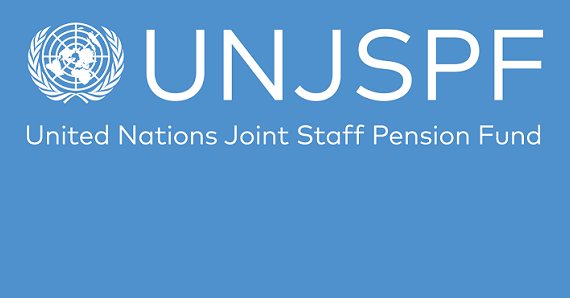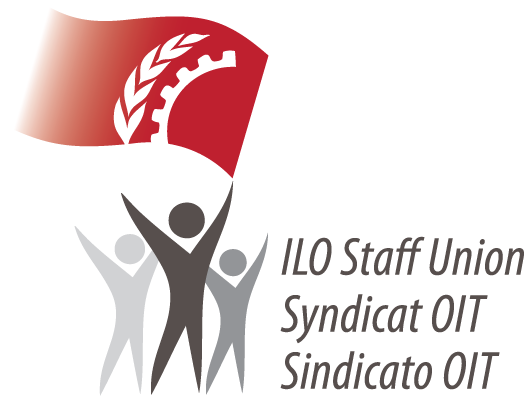
Latest news of the Pension Fund (June 2018)
Category : Archives
Four representatives from the Pension Fund, including the Deputy CEO Paul Dooley and the new RSG Sudhir Rajkumar, briefed Pension Committee representatives of the participating organizations in Geneva (including staff and retiree representatives) on 4 June 2018.
The message was broadly positive although there were also notes of caution concerning the active to retiree ratio (from 3.12 to 1.6 in 2017) and the US $ 300 million excess in 2017 of benefit payments over pension contributions received. This places even greater importance on investment returns to maintain the health of the Fund.
Human resources
The human resources situation is certainly mixed as the CEO Sergio Arvizu has been on long-term sick leave since August 2017 and is unlikely to attend the next Pension Board meeting at the end of July. The Deputy CEO is retiring from his post at the end of August 2018 (the candidate to replace him should be presented to the Pension Board at the end of July) and the Chief Communications Officer is also leaving at the end of June 2018. On a more positive note the Secretariat of the Pension Fund was granted 4 additional posts last year and all (previously) vacant senior staff positions were filled.
The new RSG responsible for investments, Sudhir Rajkumar, started in January 2018. He has 29 years of broad-based global investment experience with the World Bank and the International Finance Corporation and immediately prior to becoming RSG was head of the pensions investment advisory programme at the World Bank Treasury. Despite identifying in his first few months in office a need for additional staff to deal with the increasingly complex and challenging investment environment the number of posts in the investment division is fixed until 31 December 2019.
Operational issues
Mr. Dooley reported that in recent years the Fund has introduced a number of improvements in client services: call centre, member self-service, liaison office in Nairobi, expanded outreach activities and a new web site. An office in Bangkok, similar to that in Nairobi, is also being considered.
Currently the Fund is processing 80% of all claims within a month of receiving them (the median processing time for new claims is 12 working days) and 80% of emails are handled within 15 working days. The aim is to process 75% of all claims within 15 working days so there is still some way to go to achieving the target. He mentioned that the Fund is keen for more retirees to avail themselves of the self-service function and will be conducting an information campaign to encourage people to use the system, which is intended to improve the Fund’s ability to provide a better service to all its members.
Financial health of the Fund
The Fund currently serves 205,000 members: 127,000 participants and 78,000 retirees. The number of retirees is growing faster than active participants (increased by 86% since 1998 as opposed to 76% growth in active participants) and as already mentioned, the payments annually exceed contributions. For the Fund to remain sustainable it must achieve an annual real rate of return (i.e. net of inflation) of 3.5%, which historically it has done except in the last 10 years due to the 2008 financial crisis. The good news is that the investment return in 2017 was a healthy 16.5% – well exceeding the target – but the RSG noted that markets have been volatile in 2018 and there are always peaks and troughs in the returns on financial investments so it is important to be vigilant and certainly not be complacent. He reported, however, that the value of the Fund had remained stable since the beginning of 2018 and as of 31 March 2018 stood at US $ 64.2 billion.
What to watch for the future
- Impact of Environmental, Social and Governance (ESG) investments strategy: You may have seen the article in which the Guardian criticised the Fund for investing in companies involved in bribery and major environmental damage. This issue was tackled head on by the RSG who stated that the Fund is fully committed to responsible investing and that although the Fund does not discuss individual investments it publishes its policy on ESG investments on the website. It further intends to publish its strategy on sustainable investments. It should be reminded that the Fund does not invest in either tobacco or armaments securities.
- Office of Internal Oversight Services (OIOS) Audit Report 2017/104: The DCEO informed the meeting that there were 16 audit recommendations to be implemented, of which he said five are critical issues.
- Office of Internal Oversight Services (OIOS) Governance Review: The OIOS has started a review of the governance structure of the Fund. No information was given at the meeting concerning the timetable and process of the Review.
- Impact of salary reductions and International Civil Service Commission (ICSC) review of pensionable remuneration: This issue was not raised during the meeting but may become increasingly relevant in coming years. Although recent salary reductions applied only to professional staff stationed in Geneva if salary reductions in other areas were on the cards contribution revenue could be adversely impacted. And the ICSC review of pensionable remuneration in the ICSC 2017-2018 programme of work could also impact (either positively or negatively) on the sustainability of the Fund depending on the outcome.
More information about the senior staff, and operational and financial status of the Pension Fund is available in the most recent UNJSPF newsletter: https://spark.adobe.com/page/QYMPhPeAGRclH/
 The Section of Former Officials of the ILO
The Section of Former Officials of the ILO